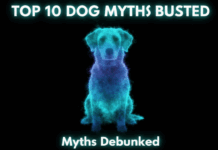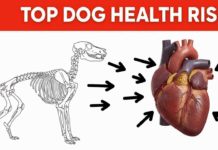Last Updated on August 2, 2024 by Dogs Vets
For many dog owners, our furry companions are nothing less than family. This affection translates into a desire to provide the very best for our dogs, especially regarding their diet. A dog’s nutrition profoundly impacts its overall well-being, affecting everything from coat health to energy levels. Understanding the difference between high-quality dog food and the rest can ensure you’re offering your puppy the best life possible. Keep reading to delve deeper into the essentials of canine nutrition and its vast implications.
Understanding the Impact of Diet on Canine Health
The saying “you are what you eat” holds as much truth for dogs as it does for humans. A balanced diet is crucial for maintaining a dog’s health, starting with a robust immune system to prevent illness. Just as importantly, an appropriate diet helps to sustain a dog’s musculature and joint health, which is particularly vital for active and older dogs. Canine nutrition isn’t just about the present; it’s about setting a foundation for lifelong vigor.
Beyond the physical, dietary choices can also influence a dog’s behavior. Foods with high sugar content or artificial additives may lead to hyperactivity or erratic behavior changes. Conversely, feeds rich in omega-3 fatty acids, like those found in Badlands Ranch, can support mental sharpness and a calm demeanor. Such nutritional strategies are integral, especially in breeds prone to anxiety or cognitive challenges.
A dog’s digestive health is another area deeply affected by diet quality. Premium foods generally contain probiotics and prebiotics, which nurture the gut microbiome. This not only aids in efficient digestion but also in the optimum absorption of nutrients. A well-functioning digestive system is key in preventing issues such as bloating or constipation, which can have more severe implications down the line.
Nutritional Requirements: What Your Dog Really Needs

Like their human counterparts, dogs require a blend of proteins, carbohydrates, fats, vitamins, and minerals to thrive. Protein is the cornerstone of a dog’s diet, essential for building and repairing tissues. Animal-based proteins provide the full range of amino acids necessary for canine health. The protein must come from high-quality sources for maximum benefit.
Fats are the next dietary necessity, offering a dense energy source and aiding the absorption of fat-soluble vitamins. A delicate balance is required, however, as too much fat can lead to obesity, while too little can result in deficiencies. Carbohydrates, while less critical, supply fiber that aids digestion and helps regulate blood sugar. Quality grains and vegetables are excellent sources of these complex carbs.
Vitamins and minerals support many bodily functions, from bone health to blood coagulation. While dogs produce vitamin C internally, they need external sources for other vitamins and a range of trace minerals. Veterinary nutritionists often emphasize the importance of these micro-nutrients in a dog’s diet, provided in the proper proportions.
Lastly, water is a central component of a dog’s diet. Dehydration can quickly lead to serious health complications, so ensuring your dog can access clean, fresh water is as important as the food you provide. Attention to these nutritional needs is the first step toward maintaining your dog’s vitality and longevity.
High-Quality Food Vs. Budget Brands: Parsing the Difference
The market is flooded with a wide array of dog food options, and while it’s tempting to opt for budget brands, the difference in quality can be significant. High-quality dog foods prioritize meat as the main ingredient, reflecting a natural canine diet. Furthermore, they tend to exclude by-products and fillers that offer little nutritional value and can sometimes cause allergies or intolerance.
Additionally, premium dog food brands invest in quality assurance and often source their ingredients responsibly. They aim to provide complete and balanced nutrition following the latest scientific research. This usually means fewer artificial preservatives, colors, or flavors, which might harm a dog’s health in the long run. Moreover, high-quality brands often feature novel ingredients, such as chelated minerals, for better absorption.
Price can reflect these differences, but feeding your dog a cheaper diet could lead to health issues that cost more over time. Budget brands may contribute to dietary deficiencies or excesses, which can be difficult and expensive to remedy. While premium food may have a higher initial cost, it typically requires smaller serving sizes due to its higher nutrient density, potentially evening out costs.
Altogether, investing in high-quality dog food ensures your pet receives optimal nutrition, supporting their overall health, behavior, and longevity. Prioritizing quality over cost benefits your dog’s immediate well-being and can prevent more significant health issues and expenses in the future.
Fact Check
We strive to provide the latest valuable information for pet lovers with accuracy and fairness. If you would like to add to this post or advertise with us, don’t hesitate to reach us. If you see something that doesn’t look right, contact us!























